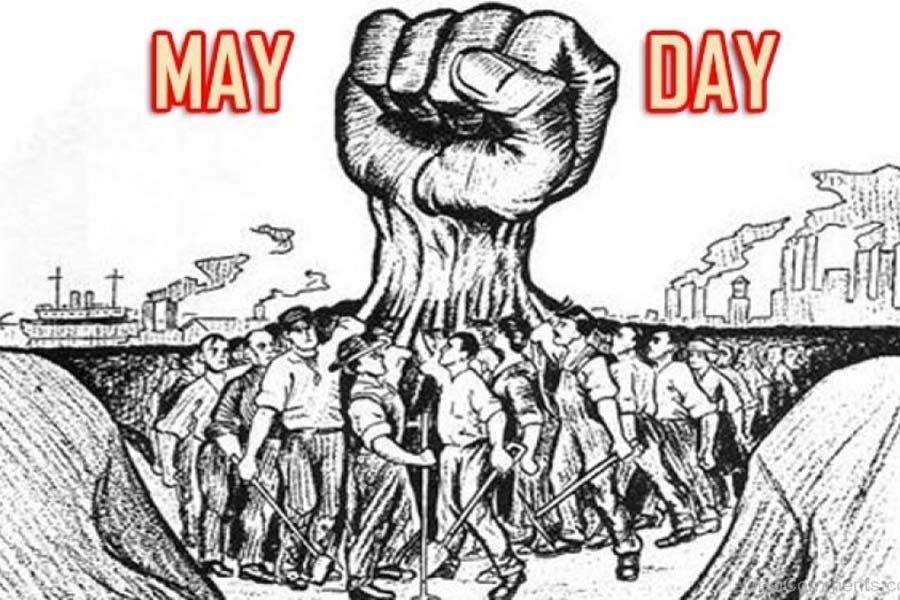Since its inception in 1886, the May Day has hardly come at a more crucial timefor workers the world over. Factories, industries and businesses in most industrial and commercial hubs of the world have remained closed. Workers are no longer pitted against owners of establishments but they along with their managements are fighting an invisible foe, coronavirus that is sweeping the world mercilessly. Now governments, owners and workers are all desperate to overcome the crisis. But it is the workers whose desperation beggars description as evident from the streams of garments workers arriving to their workplaces defying not only the enormous difficult journey but also the rule of social and personal distancing. Confusion over reopening of garments factories forced them to take the arduous journey to the capital once earlier and again they have been subjected to similar travail by partial reopening of factories. In fact, almost half the number of garments factories has reopened, exposing the workers to risk of infection.Then garments workers are not all. There are daily labourers, menial workers in the informal sector and many others who have lost income on account of the prolonged lockdown.
Thus the May Day celebration is likely to be muted this time but evocation of its spirit is warranted at its most inspirational.No other day has ever come to preserve the rights of the working class more than the May Day. In the annals of labour struggle, the Heymarket (Chicago) massacre, subsequent trial and recognition of 8-hour work a day prove to be the fountainhead of every single right workers have earned so far. Although the momentous event took place on May 4, 1886, at Heymarket square, May 1 subsequently became the day for commemoration the world over. However apart from official recognition of labour rights in various forms, the USA has ever remained lukewarm to this now internationally observed workers' day.
Now that the entire world is gasping for breath under the physical and psychological stress piled upon individuals, communities and nations, workers everywhere find themselves at a more disadvantageous position than ever because of their extra vulnerability to income erosion. They have no savings, live in unhealthy conditions and social distancing at times becomes a luxury for them unless they are helped out of their desperation. Now the choice is between life and livelihoods. It seems the latter has prevailed at least in case of garments workers. Let's hope it does not prove extremely costly.
The World Food Programme's dire prediction that as many as 30 million people may perish from starvation only confirms how adverse the situation could prove for the low income groups in every society. Many will lose jobs and unless governments bring them under a social security net, such deaths cannot be averted. Already automation and artificial intelligence (AI) have posed a threat to workers -not only the unskilled and semi-skilled but also the skilled. Coronavirus has disrupted all calculations and in the post-Covid regime preserving workers' welfare should prove more compelling than ever before.


